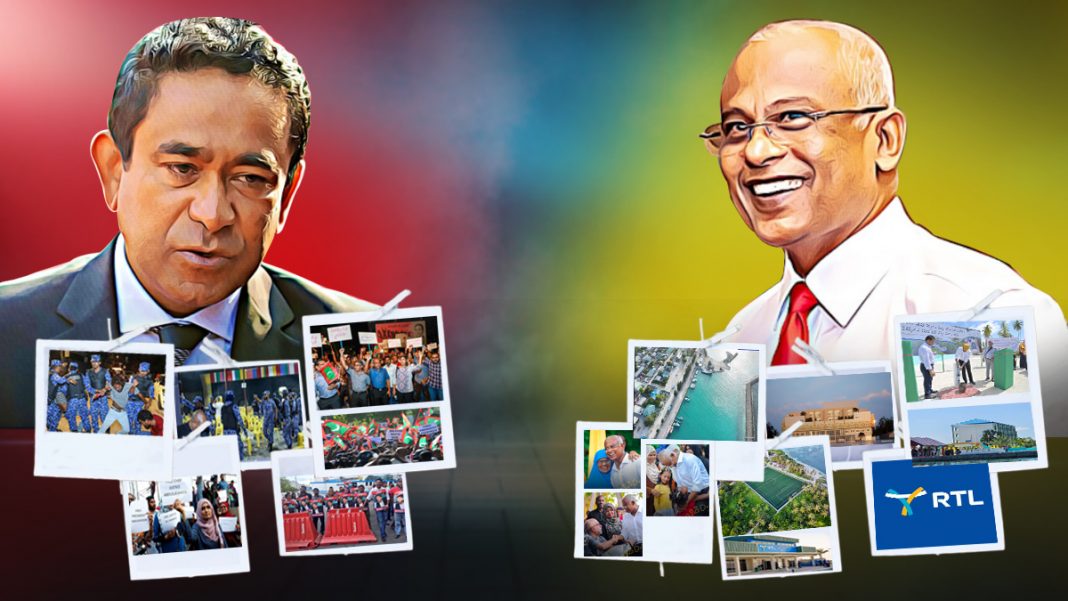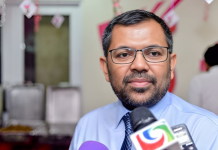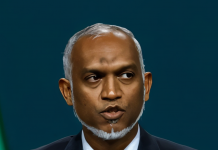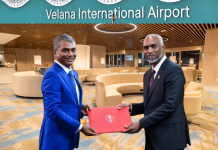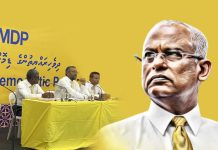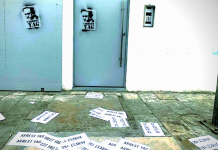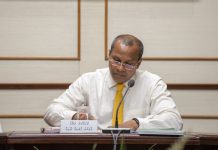In a candid reflection on his initial presidential term, President Ibrahim Mohamed Solih has shed light on the stark differences between his administration and the preceding five-year tenure of former President Abdulla Yameen. The comparison draws attention to Yameen’s alleged manipulation of power, suppression of political rivals, and erosion of press freedom.
During a recent address to the residents of Shaviyani atoll Bilehfahi as part of his ongoing campaign trail, President Solih unveiled disturbing tactics employed by Yameen to secure his hold on power. Solih pointed out that in the lead-up to the 2018 presidential election, Yameen resorted to imprisoning a slew of political adversaries, effectively sidelining potential challengers and casting a shadow over the democratic process.
Among those targeted were prominent figures such as Sheikh Imran Abdulla, who found himself imprisoned under a draconian 12-year sentence. Notably, MP Mahloof also faced incarceration, while political heavyweights including Qasim Ibrahim and President Nasheed were forced into exile from the Maldives. The grim list extended to encompass even President Maumoon and Faris, who suffered incarceration as well. Shockingly, a dozen members of the parliament, alongside party leaders and individuals occupying senior positions within parties, found themselves behind bars under Yameen’s regime.
President Solih’s condemnation of Yameen’s presidency reverberated through his remarks, wherein he decried the manipulation of democratic norms in favor of a repressive and autocratic regime. He unequivocally assured the public that his own administration would eschew such coercive tactics, committing to a political environment free from the undue persecution of opponents.
Notably, the erosion of press freedom under Yameen’s rule has been brought into sharp focus by President Solih. He cited a distressing pattern wherein journalists were summoned to the president’s office, often multiple times, or even worse, faced imprisonment for daring to express dissenting views. This chilling atmosphere cast a pall over the nation’s media landscape, silencing voices and quashing any semblance of objective journalism.
President Solih’s administration has made it a priority to restore the bedrock principles of a free press. He emphasized that under his leadership, journalists now enjoy the liberty to report and express opinions without fear of retribution. The oppressive cloud that had shrouded media outlets has been lifted, and the press can once again serve as a vital check on the government’s actions.

